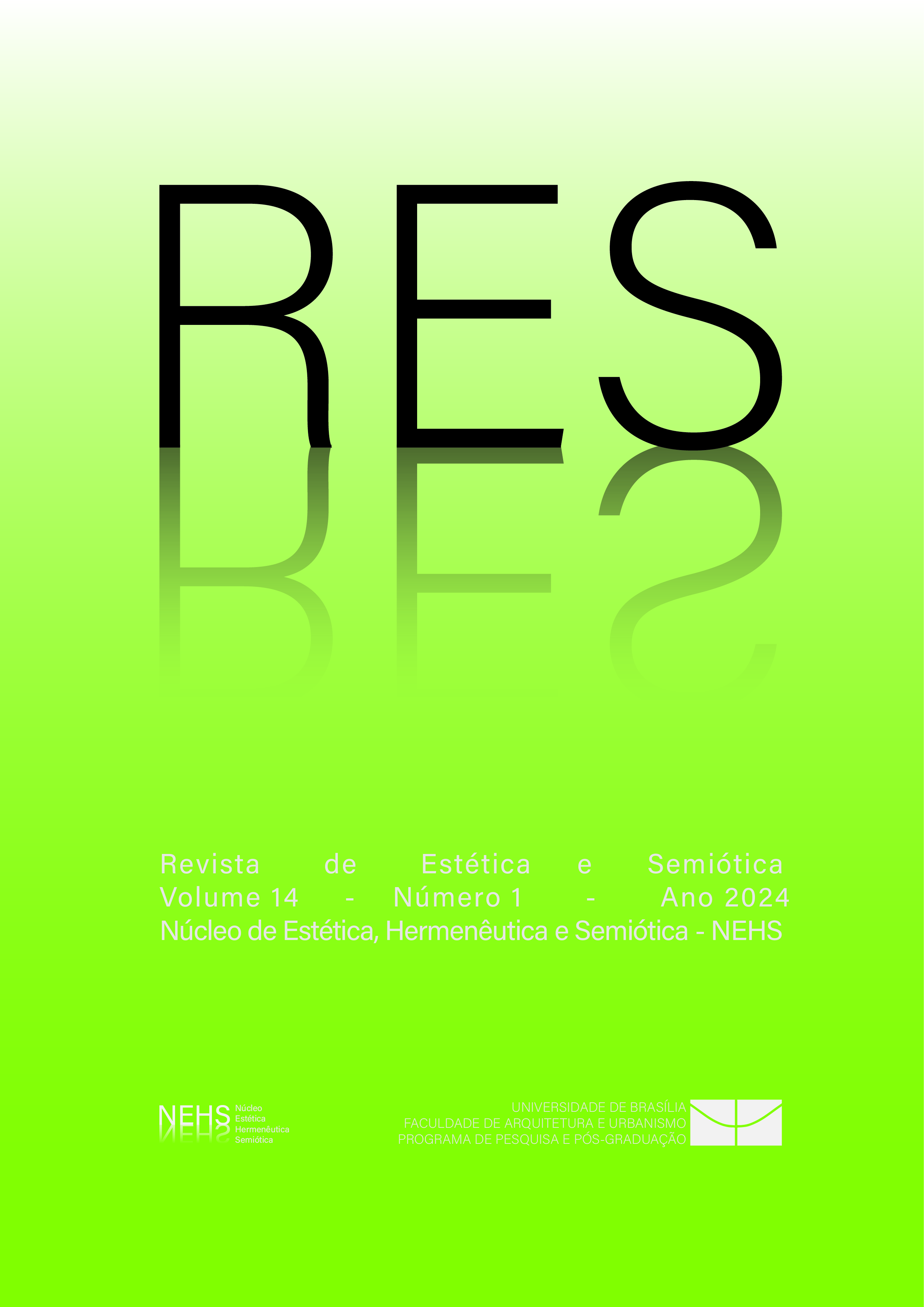Dancing building: deconstrctuvist aesthetics
DOI:
https://doi.org/10.18830/issn2238-362X.v14.n1.2024.09Keywords:
aesthetics analysis; art and architecture; Wölfflin conceptual pairs; deconstructivist architecture; Frank Gehry.Abstract
This article seeks to provide a historical overview and
an aesthetic understanding of the Dancing Building,
a landmark of Frank Gehry’s deconstructivist architecture.
Located in Prague, the capital of the Czech
Republic, the office building was designed and built
in the 1990s, in the context of the dissolution of the
Soviet Union. Although the building is now considered
an inseparable reference to Prague, its emergence
sparked intense debate in local society due to the
election of a disruptive party in the midst of a specific
aesthetic environment. Our effort to understand the
work is divided into three parts: first, we situate the
building in terms of its historiography, highlighting
the controversy surrounding its emergence; then,
we view the building according to Heinrich Wölfflin’s
methodology of conceptual pairs; finally, we observe
how this building responds to concepts typical of contemporary
architecture, especially in the dimension
in which art and architecture dissolve and merge.
Downloads
References
BALDWIN, Eric. Trad.: LIBARDONI, Vinicius. Praga:
uma janela para o mundo. Archdaily. 2020. Disponível
em: https://www.archdaily.com.br/br/948254/
praga-uma-janela- para-o-mundo. Acesso em: 31
mai. 2024.
BARROS, José D´Assunção. Heinrich Wölfflin e sua
Contribuição para a Teoria da Visibilidade Pura. In:
Existência e arte - Revista eletrônica do Grupo PET.
Ano II, nº VI. Universidade Federal de São João
Del-Rei, 2011. Disponível em: https://ufsj.edu.br/
portal2-repositorio/File/existenciaearte/Edicoes/6_
Edicao/Heinrich_Wolfflin_e_sua_contribuicao_para_
a_teoria_da_visibilidade_pura.pdf. Acesso em:
/05/2024.
BRANDÃO, Ludmilla. Da cidade moderna às contemporâneas:
notas para uma crítica do urbanismo modernista.
In Revista Territórios & Fronteiras, Vol. 7, nº
Cuiabá: UFMT, 2014.
DAILY SABAH. Part of Prague’s iconic Dancing House
turns into hotel. 2016. Disponível em: https://www.
dailysabah.com/travel/2016/09/22/part-of-pragues-
-iconic-dancing-house- turns- into-hotel. Acesso
em: 31 mai. 2024.
FAZIO, Michael; MOFFETT, Marian; WODEHOUSE,
Lawrence. A história da arquitetura mundial. Tradução:
Alexandre Salvaterra. 3ª ed. Porto Alegre:
AMGH, 2011.
FIALOVÁ, Irena. Dancing Building. Rotterdam: Prototype
editions, Zlatý řez, 2003.
GREENBERG, Clement. Abstração pós-pictórica. In
FERREIRA, Glória; MELLO, Cecília Cotrim de (orgs.).
Clement Greenberg e o Debate Crítico. Rio de Janeiro:
Funarte Jorge Zahar, 1997.
JOHNSON, Philip; WIGEY, Mark. Deconstructivist architecture.
New York: The Museum of Modern Art,
DANCING BUILDING: ESTÉTICA DESCONSTRUTIVISTA
SCOFFIER, Richard. Os quatro conceitos fundamentais da arquitetura contemporânea. In OLIVEIRA, Beatriz Santos de [et al.] (orgs.). Leituras em teoria da Arquitetura, vol. 1. Rio de Janeiro: Viana & Mosley, 2009.
VIDLER, Anthony (2008). O campo ampliado da arquitetura. In KRISTA SKYES, A. (org.) O campo ampliado da arquitetura: antologia téorica (1993-2009). Tradução: Denise Bottman e Roberto Grey. São Paulo: Cosac & Naify, 2013.
WÖLFFLIN, Heinrich. Conceitos Fundamentais da História da Arte. Tradução: João Azenha Jr. São Paulo: Martins Fontes, 1984
Downloads
Published
How to Cite
Issue
Section
License
Copyright (c) 2024 BRENO DE LIMA ANDRADE

This work is licensed under a Creative Commons Attribution-NonCommercial 4.0 International License.




